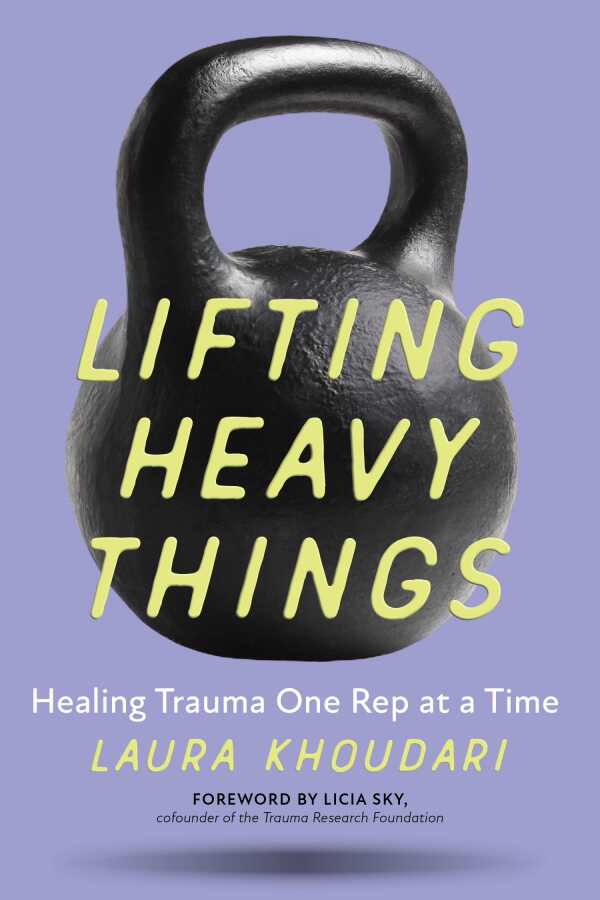Lifting Heavy Things
Healing Trauma One Rep at a Time
The motivational self-help book Lifting Heavy Things suggests means of mitigating trauma’s affects on the body.
Laura Khoudari’s empathetic self-help book Lifting Heavy Things concerns the intersection of health and fitness with trauma.
Khoudari has firsthand knowledge of her topic: her own traumatic experiences made her loathe her body for years, until she reclaimed her power via weightlifting. She recounts shifting to a career in fitness training, where she works with clients to understand how trauma affects the body. Sometimes, it does so in messy ways, impacting people’s boundaries or leading to feelings of numbness.
In three sections, Khoudari eases audiences who want to replicate her system into their new workout regimens, covering conditions, for mental preparation; activation, for physical awareness; and recovery, for resilience and emotional healing. The book explains the psychology behind trauma and shows how bodies respond to stimuli. It reveals that the limbic system covers feelings of overwhelm and frustration, while the prefrontal cortex handles emotional and thought-based responses. Khoudari also introduces the helpful concept of the “window of tolerance,” or the amount of stress it takes for a person to boil over; that window is often smaller for those who have survived traumas, she says.
The book’s organization follows the logical order in which the mental and physical work should be completed, with each chapter building upon the one previous. The language is kind and encouraging, pushing the audience to take baby steps through the mental hurdles that may block them from going to a gym. Within each chapter is at least one brief note to help the audience recenter themselves, like “I invite you to pause, check in, and notice your surroundings,” as a reminder that the core of the practice is remaining aware of the body. And each chapter ends with a list of action items, from mantras to combat negative self-talk to specific exercises to notice different muscles throughout the body.
Tangible guidance comes throughout the book, with Khoudari acknowledging her privileges in the world, but also the challenges she’s faced in fitness: her body is average-sized, for example, and not that of a typical fitness fiend. The book also works at dismantling fatphobia, sharing mortifying high school gym class moments and instances of bullying. The inclusion of stories from Khoudari’s clients is a fair representation of all stories and walks of life. At times, the book reads more like a memoir than a self-help text, but those elements of it are as accessible and compelling as the rest.
Drawing on personal experiences, the motivational self-help book Lifting Heavy Things suggests means of mitigating trauma’s affects on the body.
Reviewed by
Ashley Holstrom
Disclosure: This article is not an endorsement, but a review. The publisher of this book provided free copies of the book and paid a small fee to have their book reviewed by a professional reviewer. Foreword Reviews and Clarion Reviews make no guarantee that the publisher will receive a positive review. Foreword Magazine, Inc. is disclosing this in accordance with the Federal Trade Commission’s 16 CFR, Part 255.

